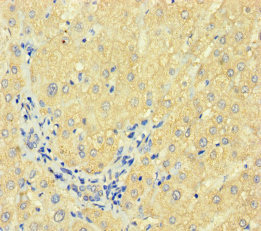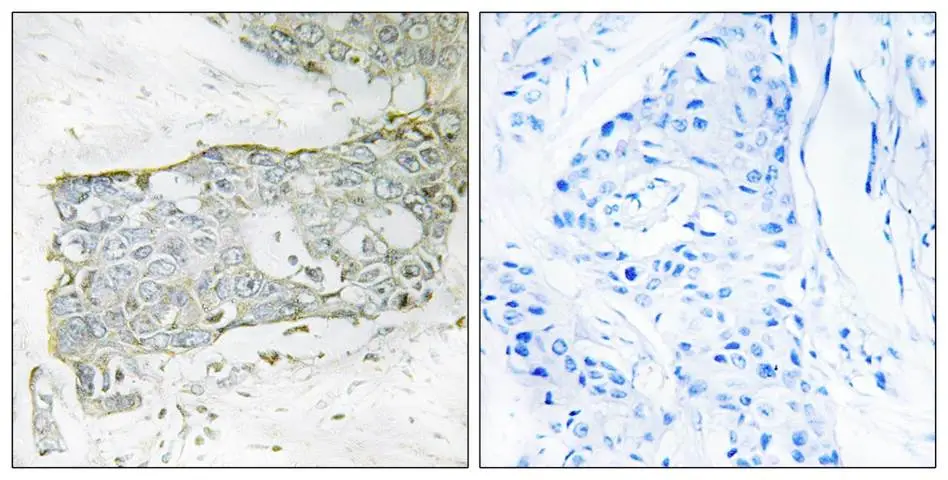![ELISA analysis of human serum using GTX41198 Factor VII antibody [RFF-VII/1]. ELISA analysis of human serum using GTX41198 Factor VII antibody [RFF-VII/1].](https://www.genetex.com/upload/website/prouct_img/normal/GTX41198/GTX41198_3642_ELISA_w_23060820_554.webp)
ELISA analysis of human serum using GTX41198 Factor VII antibody [RFF-VII/1].
Factor VII antibody [RFF-VII/1]
GTX41198
ApplicationsWestern Blot, ELISA, RadioImmunoAssay
Product group Antibodies
TargetF7
Overview
- SupplierGeneTex
- Product NameFactor VII antibody [RFF-VII/1]
- Delivery Days Customer9
- Application Supplier NoteELISA: 1/20-1/200. *Optimal dilutions/concentrations should be determined by the researcher.Not tested in other applications.
- ApplicationsWestern Blot, ELISA, RadioImmunoAssay
- CertificationResearch Use Only
- ClonalityMonoclonal
- Clone IDRFF-VII/1
- Concentration1 mg/ml
- ConjugateUnconjugated
- Gene ID2155
- Target nameF7
- Target descriptioncoagulation factor VII
- Target synonymsSPCA, coagulation factor VII, FVII coagulation protein, coagulation factor VII (serum prothrombin conversion accelerator), eptacog alfa, proconvertin
- HostMouse
- IsotypeIgG1
- Protein IDP08709
- Protein NameCoagulation factor VII
- Scientific DescriptionThis gene encodes coagulation factor VII which is a vitamin K-dependent factor essential for hemostasis. This factor circulates in the blood in a zymogen form, and is converted to an active form by either factor IXa, factor Xa, factor XIIa, or thrombin by minor proteolysis. Upon activation of the factor VII, a heavy chain containing a catalytic domain and a light chain containing 2 EGF-like domains are generated, and two chains are held together by a disulfide bond. In the presence of factor III and calcium ions, the activated factor then further activates the coagulation cascade by converting factor IX to factor IXa and/or factor X to factor Xa. Defects in this gene can cause coagulopathy. Alternative splicing results in multiple transcript variants encoding different isoforms that may undergo similar proteolytic processing to generate mature polypeptides. [provided by RefSeq, Aug 2015]
- Storage Instruction-20°C or -80°C,2°C to 8°C
- UNSPSC12352203


